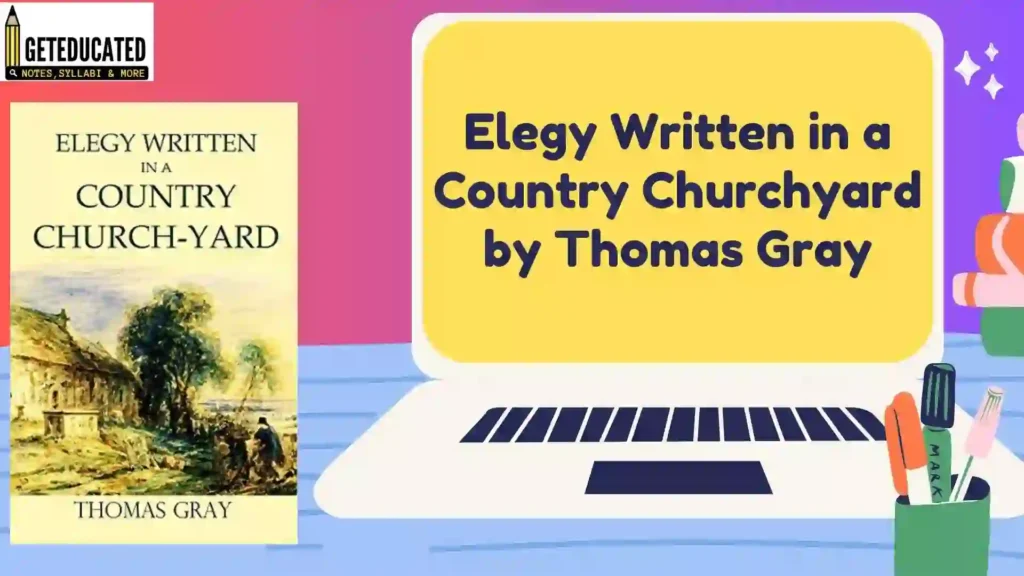
Q. Write a Critical Appreciation of the Poem “Elegy Written in a Country Churchyard”.
Elegy which owes its origin to Greek ‘elegos’ is a song of lamentation occasioned by the death of a person whom the poet loved or admired. The subjects in Classical Greek and Roman literature elegies were death, war, love and similar themes. Till seventeenth century poems written on the transience of all worldly things were called elegies. In the 17th century the term elegy began to be limited to its most common present usage: a formal and sustained lament in verse for the death of a particular person, usually ending in a consolation. Tennyson’s In Memoriam (1850) is an elegy on the death of his friend, Arthur Hallam. More recent is W. H. Auden’s In Memory of W.B. Yeats (1940). Occasionally, the term is older and broader sense for sombre meditations on mortality such as Thomas Gray’s Elegy Written in a Country Churchyard (1757) and the Duino Elegies (1912-22) of the German poet Rainer Maria Rilke on the transience both of poets and of the earthly objects they write about. … (Read More)
Q. Define “Short and Simple Annals of the Poor”.
Thomas Gray was one of the most important poets of the eighteenth century. Gray’s best poetic output and the most popular elegy in English Literature, The Elegy Written in a Country Church-Yard is a perfect fusion of the dignity of subject matter and the habitual elevation of his craftsmanship. This Elegy is unique in more ways than one. Primarily, the 18th century audiences were passing through a society which was full of city bred, fashionable and pompous beaus and belles. Gray’s “Elegy” is one of the best known poems about death in all of European literature. The poem presents the reflections of an observer, who passing by a churchyard out in the country, stops for a moment to think about the significance of the strangers buried there. Scholars of medieval times sometimes kept human skulls on their desktops, to keep themselves conscious of the fact that someday they, like the skulls’ former occupants, would die; from this practice we get the phrase memento mori, which we say to this day to describe any token one uses to keep one’s mortality in mind. … (Read More)
Q. Justify Gray’s Comment on the Unlettered Village Poet.
In this Poem, An Elegy Written In Country Churchyard” Poet beautifully compared the parting day with the reality of our life. He appealed the high standard people not to give disdainful smile at the rough lives of the poor or their forefathers. He revealed the truth of life that everything in this universe is mortal and temporary. Every single person will have to leave this world with an empty hand and the destination of our life is the grave. This Elegy is unique in more ways than one. Primarily, the 18th century audiences were passing through a society which was full of city bred, fashionable and pompous beaus and belles. It is through this elegy; Gray had extended his sympathetic flavor from a famous personae in the Augustan city centre to a ‘rude forefather’ of a small ‘hamlet’. Which is why Gray remains the preeminent precursor of Romanticism, an age tempered by democratic sentiment and remembered for rural affiliation. It is in the Elegy we can concur Lyle Glazier’s belief that ‘Each rude forefather of the hamlet has become a type of mankind. There is thus a double Everyman in the poem – the poet observer, who is Everyman still alive and reflecting about death, and each rude forefather, who is Everyman already dead and underground.’ … (Read More)

[…] Elegy Long Questions and Answers […]